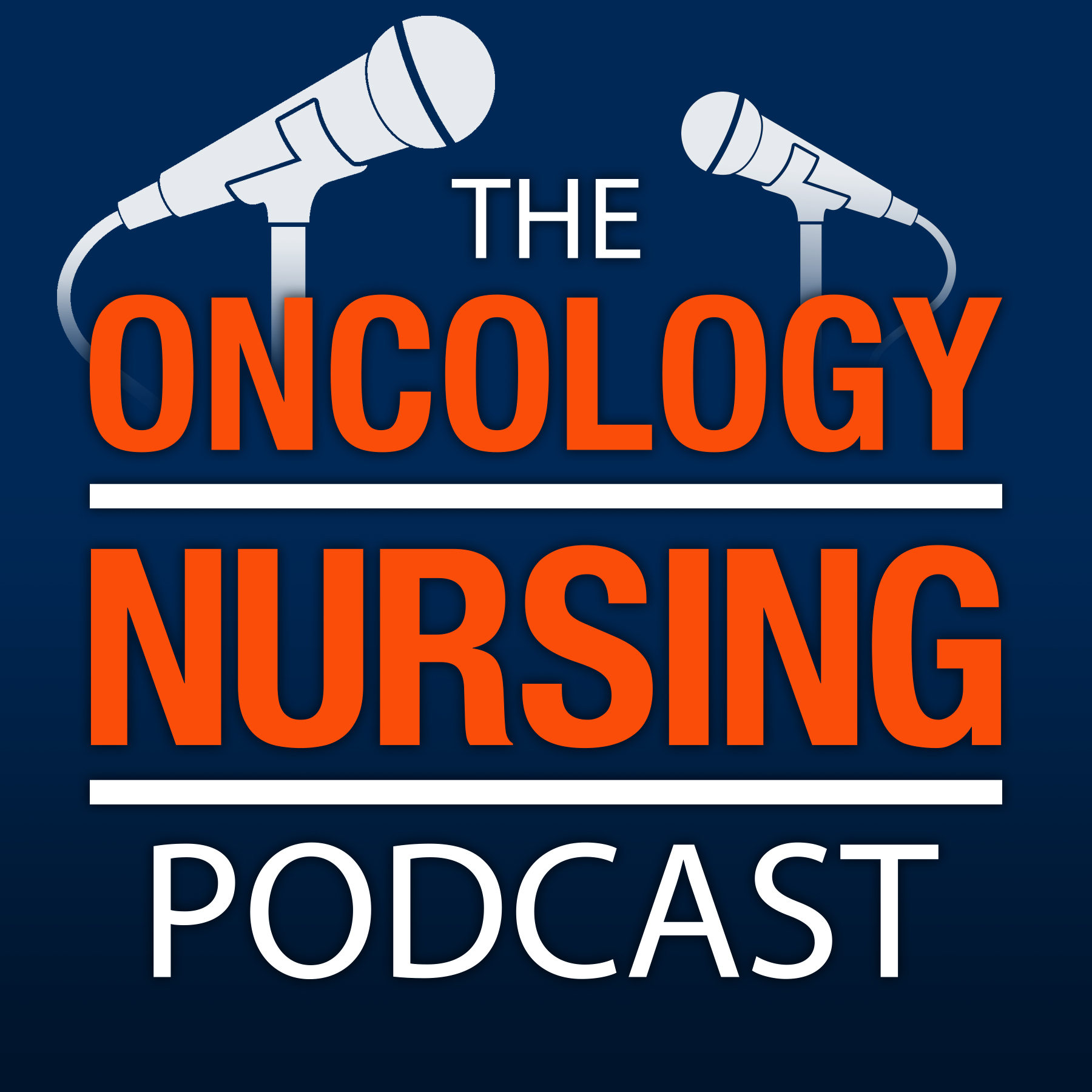
Episode 267: Side-Effect Management for CAR T-Cell Therapy for Hematologic Malignancies

The Oncology Nursing Podcast
Shownotes Transcript
“I think the take-home message here, though, is to have very specific guidelines at your institution to manage both CRS and ICANS. The protocols should be readily available to all practitioners who may participate in the care of these patients,” ONS member Phyllis McKiernan, MSN, APN, OCN®, advanced practice provider at the John Theurer Cancer Center at Hackensack University Medical Center in New Jersey, told Lenise Taylor, MN, RN, AOCNS®, BMTCN®, oncology clinical specialist at ONS. McKiernan’s and Taylor’s conversation centered around the nurse’s role in recognizing and managing toxicities related to CAR T-cell therapy for hematologic malignancies, specifically ICANS and CRS, which was an educational priority that ONS members identified during two ONS focus groups on the topic in March 2023. McKiernan was one of the content experts for those focus groups. This podcast episode is produced by ONS and supported by funding from Janssen Oncology/Legend Biotech. ONS is solely responsible for the criteria, objectives, content, quality, and scientific integrity of its programs and publications. Music Credit: “Fireflies and Stardust)” by Kevin MacLeod Licensed under Creative Commons by Attribution 3.0 Episode Notes
NCPD contact hours are not available for this episode. Oncology Nursing Podcast episodes: Oncologic Emergencies 101 series) Episode 261: CAR T-Cell Therapy for Hematologic Malignancies Requires Education and Navigation) Episode 139: How CAR and Other T Cells Are Revolutionizing Cancer Treatment) Episode 1: Experiences With CAR T-Cell Therapy)
ONS Clinical Practice Resources:
Chimeric Antigen Receptor T-Cell Therapy: A Timeline of Events and Adverse Events)
Cytokine Release Syndrome)
ONS Clinical Update: Focus on Clinical Experiences With CAR T-Cell Therapy)
ONS course: )Nursing Considerations for CAR T-Cell Therapy for Patients With Hematologic Malignancies: Patient Education and Symptom Management)
ONS Huddle Card™️: Cytokine Release Syndrome)
ONS Immuno-Oncology Learning Library)
ONS videos:
CAR T-Cell Therapy)
Cytokine Release Syndrome)
American Cancer Society)
American Society for Transplantation and Cellular Therapy Grading Scale for CRS and ICANS)
Leukemia and Lymphoma Society)
Multiple Myeloma Research Foundation)
National Institutes of Health’s National Cancer Institute)
Risk Evaluation and Mitigation Strategies)
To discuss the information in this episode with other oncology nurses, visit the ONS Communities). To find resources for creating an ONS Podcast Club in your chapter or nursing community, visit the ONS Podcast Library). To provide feedback or otherwise reach ONS about the podcast, email [email protected]). Highlights From Today’s Episode “All symptoms need to be investigated fully to determine their cause and thus the best management strategy and not just simply assume that they’re related to CAR T.” Timestamp (TS) 9:21 “Accurate grading is really crucial to ensure that the toxicities are identified and managed consistently across the institution.” TS 10:52 “Once the patient shows signs and symptoms of neurotoxicity, they should have a comprehensive neurologic examine, and that should include, a neurology consult, maybe imaging, such as an MRI or CT, and perhaps even a lumbar puncture.” TS 14:12 “Letting patients and their families know what next steps are can alleviate anxiety and give the patients the confidence that the medical team is familiar with these toxicities. And let them know that these toxicities are expected and that there are protocols in place to manage these symptoms.” TS 22:56 “I think that some patients, and even healthcare professionals, who aren’t familiar with CAR T believe that the toxicities are always severe and always irreversible. When, in reality, most of the toxicities are mild and managed with minimal intervention or even just supportive care.” TS 23:55 “Early detection, consistent grading, vigilant monitoring, and standardized care plans are crucial to the success of any CAR T program and can also help reduce the risk of the severe adverse effects and hopefully improve outcomes for our patients.” TS 30:26